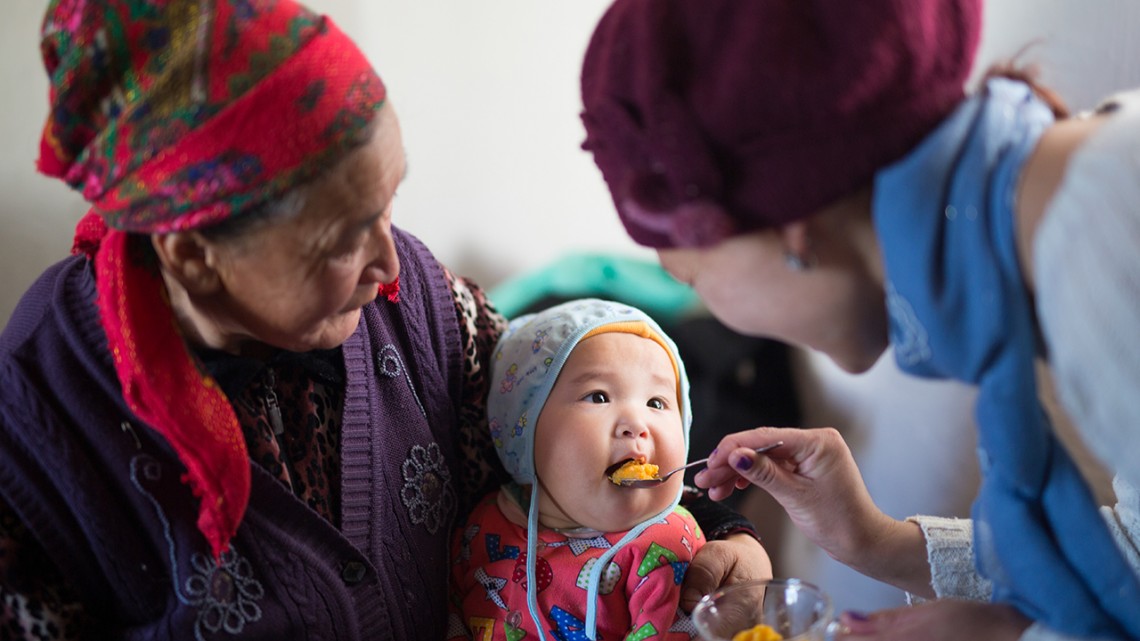
USAID Advancing Nutrition connects Cornell with international and local organizations to combat malnutrition.
Cornell researchers join five-year USAID nutrition project
By Stephen D'Angelo
Poor nutrition causes millions of deaths among children each year and costs billions of dollars in lost productivity. Cornell University researchers based in the Division of Nutritional Sciences will collaborate on a new, five-year United States Agency for International Development flagship multi-sectoral nutrition project.
The project, USAID Advancing Nutrition, will bring together international and local organizations from various sectors and disciplines to design, implement and evaluate activities that combat malnutrition.
Katherine Dickin, associate research professor within the Division of Nutritional Sciences and principal investigator for the program, will lead and coordinate the Cornell team. Members will develop the scope and approach for the overall project that will provide technical assistance to build implementation research capacity.
“We will support the project’s aims to scale up and refine multi-sectoral interventions to improve maternal and child nutrition globally by addressing food systems, community-based health and nutrition services, social and behavioral change, gender norms, child development, agriculture, water and sanitation” Dickin said.
The project’s approach draws together global nutrition experience to help address the root causes of malnutrition and build local capacity, supporting behavior change and strengthening the nutritional health care workers’ environment.
Dickin said this is a great opportunity for Cornell faculty and students to be directly involved in the link between nutrition research and practice, with outreach and collaboration in multiple countries.
Within the larger initiative, she hopes to build country-level capacity to conduct key research and ensure that lessons learned feed into future program and policy decisions.
“In this collaboration, Cornell can shape implementation research that will feedback to improve specific programs and also contribute to global understanding of not just what works, but how, where and why,” Dickin said. “More effective action to improve nutrition will save lives, build communities and contribute to educational attainment and economic development.”
The USAID Advancing Nutrition program’s activities will fall under three goals: using proven, quality nutrition interventions and services equitably and at a large scale; strengthening country commitment and capacity for nutrition programming across different sectors; and generating and applying global learning, evidence and innovative practices.
These types of collaborations are essential to improve nutrition around the globe, Dickin said.
“The array of partners in USAID Advancing Nutrition allows us to pull together the best solutions and implementation approaches, ranging from nutrition-specific programs that address malnutrition very directly to nutrition-sensitive approaches based in other sectors such as agriculture, water and sanitation, and education that have important influences on nutrition outcomes,” she said.
“Building capacity to ensure a safe and accessible food system and support the food security and nutritional status of families and communities involves so many different influences that working together is the only way forward. But beyond the project partners, it is collaboration with government, nongovernmental organizations, private sector and donor partners that is key to taking action and making real improvements,” Dickin said.
In addition to Cornell, the core implementing partners for USAID Advancing Nutrition include lead organization JSI Research & Training Institute Inc., Helen Keller International, the National Cooperative Business Association, CLUSA International, Save the Children U.S., the Global Alliance for Improved Nutrition, Results for Development, the Manoff Group, the African Nutrition Leadership Programme at North-West University in South Africa, and the University of California, Davis.
Media Contact
Get Cornell news delivered right to your inbox.
Subscribe
